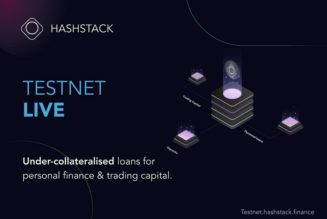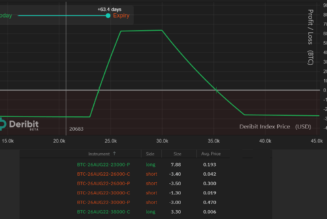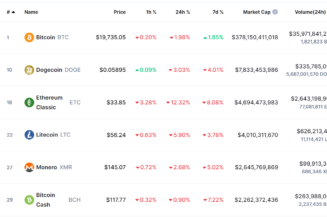
Onwards, validators will receive a priority fee instead of the total fee in transactions
The core development team behind Polygon has, today, announced that it rolled out the EIP-1559 protocol on the Polygon mainnet. The milestone succeeds a fruitful upgrade on the Mumbai testnet.
The Ethereum Improvement Protocol – 1559 went live on Polygon at block height 23850000 today at 2.47 am UTC. The upgrade, alternatively known as the London hardfork, will replace Polygon’s “first-price auction” fee approximation system.
Following successful implementation, transactions on the Polygon network would be processed differently to find a fair price. A set base fee would be defined – the minimum amount needed to complete a transaction on the chain immediately.
The set base fee would, however, not be paid to validators but would rather be burned in all transactions. Validators will instead be rewarded with a “priority fee,” creating an incentive to up the transaction speeds.
“EIP-1559 gets rid of first-price auction as the main mechanism for fee calculation. Instead, there is a discrete base fee for transactions to be included in the next block and a priority fee to speed up processing. The base fee, which fluctuates depending on network congestion, is then burned,” the official announcement detailed.
The deflationary effect
This upgrade is expected to reduce congestion and cut down on spam events in the network, as each block’s gas fees would escalate once the block fills up. However, given that the supply of MATIC tokens is fixed, EIP-1559 is expected to have a deflationary effect.
The effect would result from the reduction of available tokens, with estimates approximating 0.27% of the supply burned annually.
“Deflationary pressure will benefit both validators and delegators because their rewards for processing transactions are denominated in MATIC,” the announcement read.
Though the new protocol would not lower the fees paid in transactions (determined by demand and supply forces), it will enable better cost estimation to avoid overpricing. It is also worth noting that implementing the new protocol does not bring much change for developers as their tools will work faultlessly with only trivial effects anticipated.
Polygon’s weaknesses exposed
Despite being an Ethereum layer two scaling solution, the Polygon ecosystem has previously suffered several issues resulting in performance challenges.
The network recently took a hit in the form of a spiralling gas crisis as users flooded in a game known as Sunflower Farmers. The utility token game enabled users to gain rewards by harvesting and planting crops.
The entry of bots into the gameplay caused an escalation of gas prices resulting from a rise in competition for resources. Consequently, performance across the ecosystem was degraded, with some users reporting the inability to complete transactions.
[flexi-common-toolbar] [flexi-form class=”flexi_form_style” title=”Submit to Flexi” name=”my_form” ajax=”true”][flexi-form-tag type=”post_title” class=”fl-input” title=”Title” value=”” required=”true”][flexi-form-tag type=”category” title=”Select category”][flexi-form-tag type=”tag” title=”Insert tag”][flexi-form-tag type=”article” class=”fl-textarea” title=”Description” ][flexi-form-tag type=”file” title=”Select file” required=”true”][flexi-form-tag type=”submit” name=”submit” value=”Submit Now”] [/flexi-form]










Tagged: crypto blog, Crypto news, Ethereum, technology